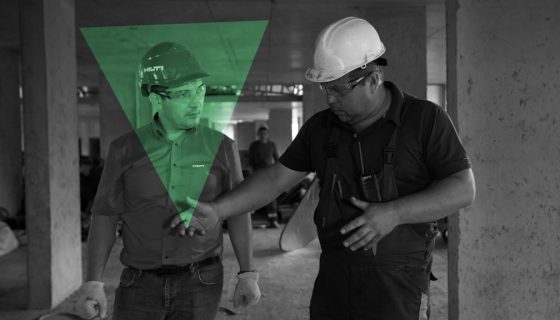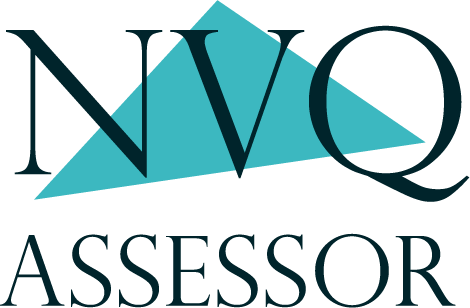In this comprehensive article, we are going to delve into becoming NVQ Assessor within the TAQA industry. So go put the kettle on and grab a snack because we are not going to miss a single detail.
BREAKDOWN FOR BEGINNERS
Firstly, we shall address exactly what an NVQ Assessor is within the TAQA industry. To make it easier on yourself, we shall split NVQ Assessor into two parts: NVQ and Assessor. NVQ or National Vocational Qualification is a work-based qualification. Taught in a: college, school, workplace or an independent training provider. According to the skills and knowledge you should have built up your work competency will be assessed through on-the-job tasks. And that in a nutshell is what NVQ is.
Now as for an Assessor, it’s a role that allows you to evaluate another person’s competency. This could be; a Business Administrator or a Hairdresser, it could be assessing an Astronaut set for the next Moon Mission. However, an Assessor must already be occupationally competent in the specific job that they wish to assess. Therefore, you must consider if you have enough knowledge and appropriate qualifications to successfully assess others in your specific field.
To put it all together, an NVQ Assessor is someone who assesses an individual working towards an NVQ of the same type the NVQ Assessor is qualified in. Hence the name: NVQ Assessor. For a business, this could be a company employee to save on hiring a freelancer. But for the individual, you could freelance around the country. Assessing learners in the workplace or learning environment.
Hopefully, by now that kettle would have boiled, so go finish off making your drink. But, if you already have your preferred beverage, let us move on to how you or one of your employees can become an NVQ Assessor.
HOW TO BECOME AN NVQ ASSESSOR?
There are a few paths to becoming an NVQ Assessor and not all of them are equal. Also, don’t be confused by the A1 Assessor course as this is not a current assessor qualification. However, we will only be mentioning 3 out of the 4 possible qualifications to qualify you to be an NVQ Assessor. As for the unmentioned qualification, due to it not qualifying a person to be an NVQ Assessor, it has been omitted. The order of recommendation is as follows:
- Level 3 Certificate in Assessing Vocational Achievement (CAVA)
- Level 3 Award in Assessing Competence in the Work Environment (ACWE)
- Level 3 Award in Assessing Vocationally Related Achievement (AVRA).
Depending on your circumstances and career investment plan one of these three qualifications is most suitable to you. Let me ask you, where do you intend and want to assess learners: in the workplace or a learning environment (e.g., an educational establishment)? If the answer was both, you would want The Level 3 Certificate in Assessing Vocational Achievement. This is the only qualification that allows you to assess people in a learning environment and the workplace. Even if you only need to operate in a learning or workplace environment. Consider the career flexibility of being able to assess both.
If time is a concern, do not worry, all NVQ’s have a two-year time limit to complete. Even with the busiest of schedules, sparing a few hours a week should be manageable. For more information look at our, number 1# recommended independent training provider Brooks & Kirk.
We understand you are dead set on assessing in either a learning or workplace environment only. In that case, let us start with the Level 3 Award in Assessing Competence in the Work Environment. This Award qualifies an individual to assess learners in the workplace only. So if you know that the learners you will be wanting to assess are in the workplace, then is this the one for you. Alternatively, if you want to assess learners in a learning environment, the Level 3 Award in Assessing Vocationally Related Achievement is the route for you.
If you want further clarification on each qualification, breaking down each Unit into bite-size chunks. Let us know at: hello@nvqassessor.org.uk.
THE NEXT STEP
Now we do not want to overload you with information, but we feel we must inform you of the: Award in End-Point Assessment Principles and Practice.
A possible career path after becoming a qualified NVQ Assessor is to become an IEPA (Independent End-Point Assessor). In the UK, at the end of all apprenticeships, an End-Point Assessment must be completed. Think of it as a final exam to graduate from an apprenticeship. This must be carried out by an IEPA with the learner. Now, why exactly are we mentioning this? “£126m for more traineeships” was unveiled at the 2021 British Budget by Chancellor Rishi Sunak. This included the aim of creating “40,000 more traineeships with the new investment” and increasing the cash incentive to businesses to “£3,000” until January 2022 (BBC, 2021). [NOTE: This incentive is now over]
Like we mentioned, apprenticeships require an EPA and the number of apprentices is projected to increase due to funding. A golden opportunity has presented itself in the assessing industry. However, we are not the only ones to realise this. More people are realising the employability gab too. As such, the market will become more and more competitive as time goes on, hence why we have mentioned the course above. Just to clarify, you are not required to do this course to become an IEPA. But it will certainly make you stand out from the crowd and allow you to better grasp what an IEPA does. As such we highly recommend you read further into an IEPA.
If this has helped you at all and you think it would be beneficial to others, please share this post with your friends and colleagues:
In this comprehensive article, we are going to delve into becoming NVQ Assessor within the TAQA industry. So go put the kettle on and grab a snack because we are not going to miss a single detail.
BREAKDOWN FOR BEGINNERS
Firstly, we shall address exactly what an NVQ Assessor is. To make it easier on yourself, we shall split NVQ Assessor into two parts: NVQ and Assessor. NVQ or National Vocational Qualification is a work-based qualification. Taught in a: college, school, workplace or an independent training provider. According to the skills and knowledge you should have built up your work competency will be assessed through on-the-job tasks. And that in a nutshell is what NVQ is.
Now as for an Assessor, it’s a role that allows you to evaluate another person’s competency. This could be; a Business Administrator or a Hairdresser, it could be assessing an Astronaut set for the next Moon Mission. However, an Assessor must already be qualified in that specific job that they wish to assess. Therefore, you must consider if you have enough knowledge and appropriate qualifications to successfully assess others in your specific field.
To put it all together, an NVQ Assessor is someone who assesses an individual working towards an NVQ of the same type the NVQ Assessor is qualified in. Hence the name: NVQ Assessor. For a business, this could be a company employee to save on hiring a freelancer. But for the individual, you could freelance around the country. Assessing learners in the workplace or learning environment.
Hopefully, by now, that kettle would have boiled, so go finish off making your drink. But, if you already have your preferred beverage, let us move on to how you or one of your employees can become an NVQ Assessor.
HOW TO BECOME AN NVQ ASSESSOR?
There are a few paths to becoming an NVQ Assessor and not all of them are equal. However, we will only be mentioning 3 out of the 4 possible qualifications to qualify you to be an NVQ Assessor. As for the unmentioned qualification, due to it not qualifying a person to be an NVQ Assessor, it has been omitted. The order of recommendation is as follows:
- Level 3 Certificate in Assessing Vocational Achievement (CAVA)
- Level 3 Award in Assessing Competence in the Work Environment (ACWE)
- Level 3 Award in Assessing Vocationally Related Achievement (AVRA).
Depending on your circumstances and career investment plan one of these three qualifications is most suitable to you. Let me ask you, where do you intend and want to assess learners: in the workplace or a learning environment (e.g., an educational establishment)? If the answer was both, you would want The Level 3 Certificate in Assessing Vocational Achievement. This is the only qualification that allows you to assess people in a learning environment and the workplace. Even if you only need to operate in a learning or workplace environment. Consider the career flexibility of being able to assess both.
If time is a concern, do not worry, all NVQ’s have a two-year time limit to complete. Even with the busiest of schedules, sparing a few hours a week should be manageable. For more information look at our, number 1# recommended independent training provider Brooks & Kirk.
We understand you are dead set on assessing in either a learning or workplace environment only. In that case, let us start with the Level 3 Award in Assessing Competence in the Work Environment. This Award qualifies an individual to assess learners in the workplace only. So if you know that the learners you will be wanting to assess are in the workplace, then is this the one for you. Alternatively, if you want to assess learners in a learning environment, the Level 3 Award in Assessing Vocationally Related Achievement is the route for you.
If you want further clarification on each qualification, breaking down each Unit into bite-size chunks. Let us know at: hello@nvqassessor.org.uk.
THE NEXT STEP
Now we do not want to overload you with information, but we feel we must inform you of the: Award in End-Point Assessment Principles and Practice.
A possible career path after becoming a qualified NVQ Assessor is to become an IEPA (Independent End-Point Assessor). In the UK, at the end of all apprenticeships, an End-Point Assessment must be completed. Think of it as a final exam to graduate from an apprenticeship. This must be carried out by an IEPA with the learner.
Now, why exactly are we mentioning this? “£126m for more traineeships” was unveiled at the 2021 British Budget by Chancellor Rishi Sunak. This included the aim of creating “40,000 more traineeships with the new investment” and increasing the cash incentive to businesses to “£3,000” until January 2022 (BBC, 2021).
As we mentioned, apprenticeships require an EPA and the number of apprentices is projected to increase due to funding. A golden opportunity has presented itself in the assessing industry. However, we are not the only ones to realise this. More people are realising the employability gab too. As such, the market will become more and more competitive as time goes on, hence why we have mentioned the course above. Just to clarify, you are not required to do this course to become an IEPA. But it will certainly make you stand out from the crowd and allow you to better grasp what an IEPA does. As such we highly recommend you read further into an IEPA.
If this has helped you at all and you think it would be beneficial to others, please share this post with your friends and colleagues:

Building Services End-Point Assessor
The employer is a Training Sector organisation in Leamington Spa who specialise in developing qualifications for the Construction and Civil Engineering sectors. They develop a range of industry qualifications including Apprenticeships, which are developed and assessed by sector specialists with real industry knowledge. They currently have a fantastic opportunity an experienced Building Services Engineer or […]

Childcare Assessor (Trainee or Qualified)
KM have an exciting opportunity for a Childcare Assessor to deliver full Apprenticeships in Childcare! This opportunity is open to both Trainee and Qualified candidates. Trainee applicants – this is a great opportunity for a Room Leader (or above) to transition to a new and rewarding career within the training industry! Qualified Assessors – applications […]

Skills Tutor
Educated Appointments are delighted to be supporting a fast-growing premier provider of accountancy training and apprenticeships. Due to increased demand for apprenticeship training programmes they are looking out for new Tutor to join our team. This role sits within the Impact Skills Team and ultimately reports to the Programme Delivery Director. This role includes travel […]

Business and Education End-Point Assessor
The role of an Apprenticeship End-Point Assessor is to provide independent, fair, reliable, and consistent assessment services to Training Qualifications UK customers working with Apprenticeship Standards. End-Point Assessors are required to use assessment experience with robust and relevant industry knowledge to form judgements and grading decisions upon the completion of a variety of assessment activities, […]






